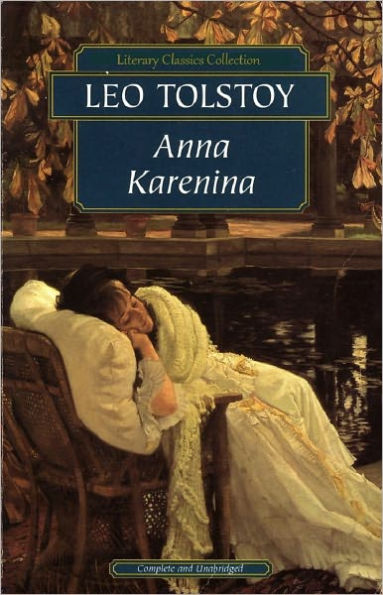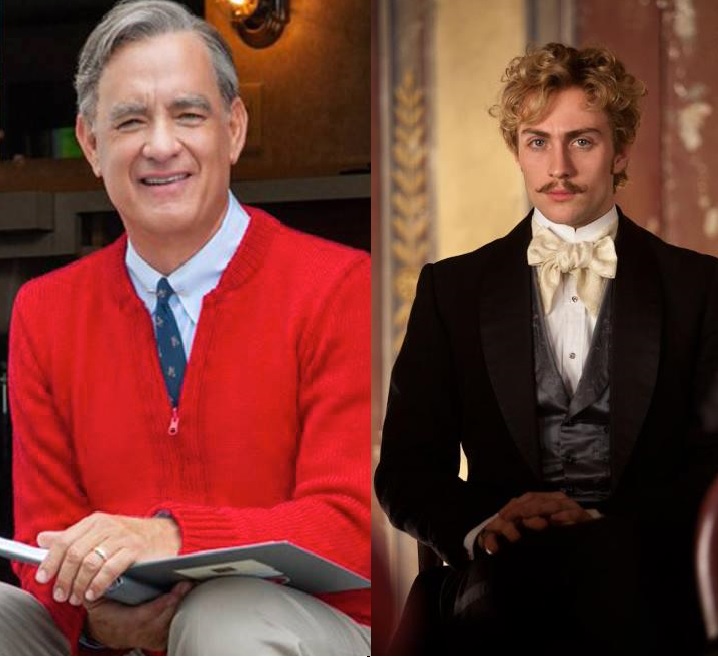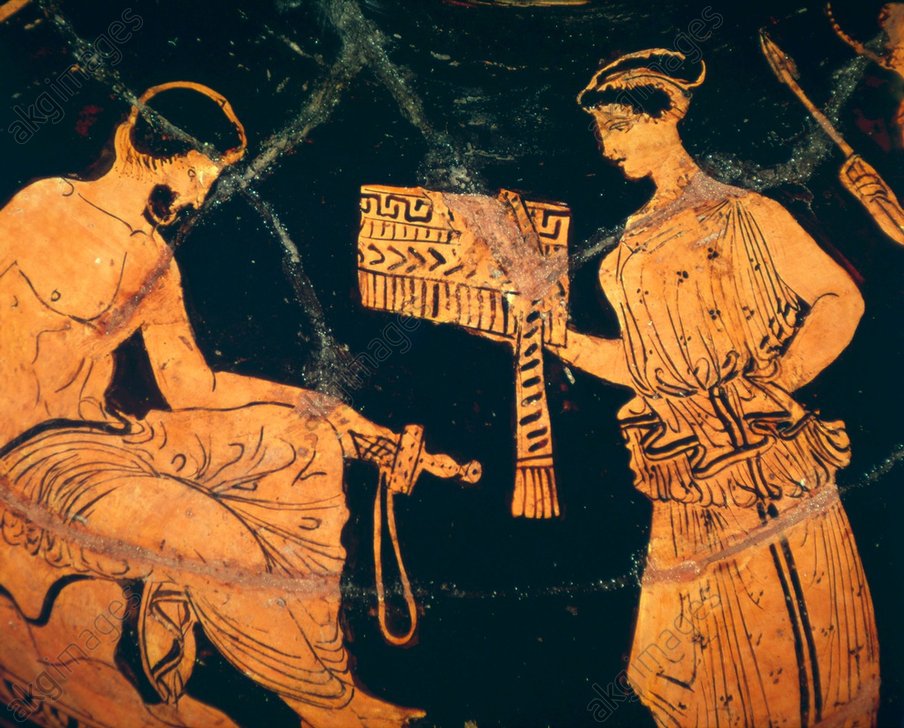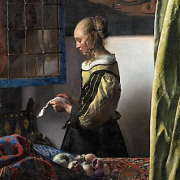Since writing my article ‘Fred Rogers vs. Oprah Winfrey,’ I got a chance to see Tom Hanks’ new film A Beautiful Day in the Neighborhood. I thought it was a beautiful, moving film, and I came away wanting to be a better person. Interestingly, I went with a group of friends who were divided between those who loved the movie and those who hated it.
One of the people in the group who didn’t like the movie texted me the next day, saying he thought the film was opposed to the values of classical education.
Tertullian (155-220) once famously questioned what commonality there was between Athens and Jerusalem, indicating his suspicion of attempts among his contemporaries to synthesize Christianity with Greek philosophy. My friend asked a similar question, “What hath Mr. Rogers Neighborhood to do with classical education?” His answer was just as emphatic as Tertullian: NOTHING.
Well, that got me started, and for the rest of the day my poor friend was inundated with a series of text messages explaining why I thought the Mr Rogers’ movie was congruent with the values of classical education. (For me, any type of communication is serious discourse, even text messaging.) Below I will copy and paste my side of the conversation because it gets to the heart of something that is of profound interest to many of my readers, namely the relationship between classical education and emotional wellness. To respect my friend’s privacy, I will not be sharing his side of the conversation, although my replies do make reference to his objections.
——
I appreciate you sharing your views, and your willingness to discuss this with me! I think your perspective is an important one. I approach this from the standpoint of classical ethics and literature (Plato, Aristotle, Homer, Church Father’s). That isn’t to say my perspective is correct and yours is wrong, but at least it might help you better understand where I’m coming from in suggesting that A Beautiful Day in the Neighborhood is congruent with classical Christian values.
I want to begin by addressing your concern that you felt the movie was trying to manipulate the viewers’ emotions. I think we have different approaches here but that we can both learn from each other. I do understand that you don’t like watching a movie and feeling like they are trying to manipulate your emotions. The difference is that I see this (having your emotions manipulated) as inescapable if the movie is done well. For example, in The Lord of the Rings, the music and lighting when Frodo and Sam go into Mordor manipulates us to feel fear, while the music that is played when they think back to the Shire makes us feel nostalgia. Classical Greek drama did the same thing. Have you ever read or watched Aeschylus’s play The Persians?
So for me the question is not whether a dramatic production manipulates our emotions, but whether the feelings it provokes inspire us towards virtue or not. I think the film we watched last night does indeed inspire virtue.
It might help if I clarified that I do not see Mr. Rogers as giving children very good quality art and theater. Sometimes he did: for example, one of the memories that stands out to me from my childhood is an episode where he brought in Yo Yo Ma to play the cello. But for the most part his program was fairly shallow and should be seen as a product and symptom of 20th century TV culture. Within that genre, and within those constrains, I think what Fred Rogers did was fantastic. His basic message about emotion (vulnerability is okay, and before we can manage our emotions we need to name and recognize them) is something that has continuity with a classical Christian approach. I want to share why I think this by referring to Aristotle, Plato, Homer, Greek mythology, and the church fathers. I don’t know how far I’ll get before I have to return to work, but I’ll start with Aristotle.
Aristotle taught that properly ordered emotions play an integral role in correct thinking in addition to helping a person’s appetites be regulated by virtue. Emotion is a type of perception—an “appearing as”— that underpins moral thinking and decision-making. For example, we feel anger when we witness an action that appears unjust, or we feel pity when we see someone suffer from evil. The emotion follows from how reality appears to us. When we see the world aright, then qualities like courage, friendship, moderation, loyalty, generosity and so forth, appear to have an intrinsic fittingness.
As soon as you view emotion from this Aristotelian perspective—which is also the Christian perspective, but that would take more time to develop—then we see that a correlate of rightly-ordered affections is vulnerability. Consider civic virtues like patriotism and friendship. The feeling of loving my country is congruent to the virtue of patriotism, but with this disposition comes the possibility of emotional vulnerability if, for example, I watch my country abandon its ideals or become subject to defeat. These unpleasant feelings are something that a mere mercenary could never be vulnerable to. The more you excel in the virtue of patriotism, the more susceptible you are to unpleasant emotions in the face of your country’s destruction. So unpleasant emotions like sadness and pain are sometimes the appropriate consequence of rightly ordered emotional dispositions. Another example of the same principle would be the virtue of friendship. With this virtue comes the possibility of emotional vulnerability if your friend betrays you, or if your friend falls into pain and you are unable to help. The more you excel in the virtue of friendship, the more vulnerable you will be to heartache and sorrow.
To have a virtuous approach to emotion, therefore, is to embrace the possibility of vulnerability. That’s where Mr. Rogers’ message is helpful. The journalist he interacted with in the movie had enormous pain, but he could only become whole when Mr. Rogers helped him to embrace his vulnerability. That was scary for him, because he felt safe retreating behind a wall of hardness, anger, and cynicism (remember that his articles always debunked people in a cynical way). That was Mr. Rogers’ message that flies in the face of modern stereotypes of manliness where courage and vulnerability are opposites, and where being manly means you don’t feel or don’t talk about your emotions. Where I think Aristotle is helpful is in showing that a rightly-ordered emotional life involves susceptible to vulnerability, and Mr. Rogers’ hospitality towards vulnerability aligns with this. When we try to run from pain, rather than being present with our pain and the feelings of vulnerability it provokes, then we cannot have the right posture towards the world that properly undergirds moral decision-making.
Classical Greek drama did the same thing. Have you ever read The Persians? So for me the issue is whether the feelings we are being manipulated to feel inspire us towards virtue or not. I think the film we watched last night does inspire virtue.
It might help if I clarified that I do not see Mr. Rogers as giving children very good quality art and theater. Sometimes he did: for example, one of the memories that stands out to me is an episode I watched as a child where he brought in Yo Yo Ma to play the cello. But for the most part his program was fairly shallow and should be seen as a product and symptom of 20th century TV culture. Within that genre, and within those constrains, I think what he did was fantastic. His basic message about emotion (vulnerability is okay, and before we can manage our emotions we need to name and recognize them) is something that has continuity with a classical Christian approach. I want to share why I think this by referring to Aristotle, Plato, Homer, Greek mythology, and the church fathers. I don’t know how far I’ll get during the present 15 min break, but I’ll start with Aristotle.
Aristotle taught that properly ordered emotions play an integral role in correct thinking in addition to helping a person’s appetites be regulated by virtue. Emotion is a type of perception—an “appearing as”— that underpins moral thinking and decision-making. For example, we feel anger when we witness an action that appears unjust, or we feel pity when we see someone suffer from evil. The emotion follows from how reality appears to us. When we see the world aright, then qualities like courage, friendship, moderation, loyalty, generosity and so forth, appear to have an intrinsic fittingness.
As soon as you view emotion from this Aristotelian perspective–which is also the Christian perspective, but that would take more time to develop–then we see that a correlate of rightly-ordered affections is vulnerability. Consider civic virtues like patriotism and friendship. The feeling of loving my country is congruent to the virtue of patriotism, but with this disposition comes the possibility of emotional vulnerability if, for example, I watch my country abandons its ideals or become subject to defeat. These unpleasant feelings are something that a mere mercenary could never be vulnerable to. The more you excel in the virtue of patriotism, the more susceptible you are to unpleasant emotions in the face of your country’s destruction. So unpleasant emotions like sadness and pain are sometimes the appropriate consequence of rightly ordered dispositions. Consider the virtue of friendship. With this virtue comes the possibility of emotional vulnerability if your friend betrays you, or if your friend falls into pain and you are unable to help. The more you excel in the virtue of friendship, the more vulnerable you will be to heartache and sorrow.
To have a virtuous approach to emotion, therefore, is to embrace the possibility of vulnerability. That’s where Mr Rogers’ message is helpful. The journalist he interacted with (in the movie, not in real life) had enormous pain, but could only become whole when Mr Rogers helped him to embrace his vulnerability. That was scary for him, because he felt safe retreating behind a wall of hardness and anger and cynicism (remember that his articles always debunked people in a cynical way). That was Mr. Rogers message that flies in the face of modern stereotypes of manliness where courage and vulnerability are opposites, and where being manly means you don’t feel or don’t talk about your emotions. Where I think Aristotle is helpful is in showing that a rightly-ordered emotional life is an emotional condition that is susceptible to vulnerability. When we try to run from pain, rather than being present with our pain and the feelings of vulnerability it provokes, then we cannot have the right posture towards the world that properly underpins moral decision making
At this point my friend texted some push-back, to which I replied as follows:
Gotcha. Let me put it like this…
An example of vulnerability helping with moral decision-making is Rogers’ simple song, “The Mad That You Feel.” It begins by helping the person become vulnerable enough to talk about his/her pain and hurt, but then by the last verse the song is helping the person make right decisions in how to respond to those emotions. I think this can translate into complex situations, like the emotional turmoil that Anna Karenina felt leading up to her suicide in Tolstoy’s classic Anna Karenina.

If Count Vronsky and Anna could have learned to be vulnerable with each other and themselves, to name and identify their emotions, then maybe they could have managed it. Count Vronsky could have learned to ask “Is this one of those times when you’re feeling scared?” Perhaps simply asking this, maybe while taking Anna in his arms and holding her tight, would have helped without him needing to say anything more. Perhaps on another occasions Vronsky could open up about his own struggles by saying something like, “When you’re like this, it scares me. I love you and so it scares me when you seem to be withdrawing. It’s like you go into yourself, and that frightens me because I can’t reach you anymore. I don’t know how to deal with this, and so I withdraw myself.” This vulnerability on Vronsky’s part might help Anna to be vulnerable, and thus to lean into her pain instead of escaping through drugs and ultimately suicide. She might have then been able to slow down and recognize the emotions that are upstream of her reactions. She might have said something like this, “I’m scared of losing you, losing what we had. You’re the only person I have now, as all of society has turned its back on me and yet I feel that I’m pushing you away from me, and that makes me so afraid. When you distance yourself from me, it makes me want to die.” In this hypothetical conversation, Count Vronsky and Anna have not actually solved any of the issues that became the proximate causes of their conflict. They have not identified whose fault the problems were. They have not even put together a strategy for how to negotiate next time the trouble begins. All that happened in this hypothetical exchange is that both started to be real with the other, opening up a space for the other to come in and share their pain. This immediately takes what was initially an occasion for disconnection and transforms it into an occasion to reforge their emotional bond. But that would involve both of them becoming vulnerable to each other, and to be vulnerable takes courage (case in point: Mr. Rogers who was an example of both courage and vulnerability).
I am not saying that this thought experiment represents a better alternate version of Tolstoy’s classic. The dramatic tension that makes this novel such a classic is precisely because Anna and Vronsky did not pursue this path towards healing. Moreover, this hypothetical scenario is anachronistic since this type of vulnerability would be out of place with the integrity of Anna and Vronsky’s internal dynamics as characters, not to mention the mores of late 19th century Russia. But that is precisely the point: because they could not be vulnerable with each other, their relationship was ultimately destroyed.

As an aside, this is why I have a problem with traditional couples’ therapy. Traditional couples therapy might involve helping the man and women not to fight, or to better negotiate, or to learn various communication techniques. But the crux of relationship problems is almost always that one or both members of the relationship have begun to feel insecure in the emotional bond. Our need for secure attachment is one of our most basic primordial needs, going back to our earliest experiences of the world. When we start to feel emotionally disconnected from the person we love, that can be frightening, and it can initiate a cascading series of problems in the relationship. The problem is that when a couple just focuses on the surface problems, then the attempt at repair can end up being self-defeating. What is actually needed is to feel safe with our loved one, to be able to be vulnerable with him or her without the bond being disrupted.

This perspective on vulnerability is extremely classical. I’ve already mentioned about Aristotle, but we see the same thing in Homer and Greek mythology. In both the Odyssey and the Iliad, Homer portrays Odysseus as a a very vulnerable character, but someone whose vulnerability is organically integrated with his manliness and courage. During his exile on Calypso’s island, Odysseus is given a variant of the same choice that faced Achilles. He can stay with the nymph and live the immortal life of a god—a life untroubled by hardship, want, and the threat of death—or he can be true to his nature and pursue the things that have always meant the most to him, such as his wife Penelope waiting patiently for him, his family, his subjects, and his true homeland. From one standpoint, staying with Calypso would have been the sensible decision, for when Odysseus chooses to leave Calypso for his homeland, he is choosing to embrace vulnerability. He is choosing to live the life of mortality, with its promise of trouble, of slow aging, and ultimately death. Recognizing this, Calypso reminds Odysseus of all the troubles that will await him if he chooses to leave her. Remain here, she says, and you will be beyond the reach of death, and you can rule in calm possession of this dominion. The choice that Calypso offers Odysseus is that of transcending his human nature, and thus transcending the fragility and pain with which that nature is associated.
Odysseus recognizes exactly what is at stake when he turns from the path of the gods, represented by Calypso, and embraces the path of the human, as represented by Calypso’s counter-part Penelope. The choice Odysseus faced with Calypso is similar to the choice he faced when passing through the land of the Sirens. Odysseus would rather make himself vulnerable to this beautiful music, despite the painful longings it evokes within him, than to do the sensible thing and pass by with his ears plugged with wax. In the choice to make himself vulnerable to the beauty of the Siren’s music even though it comes with pain, and again in the choice to become vulnerable to aging and death by returning to the arms of Penelope, we catch a glimpse of a uniquely human set of priorities that characterize Homer’s hero. But with these values comes vulnerability. Odysseus chooses to pursue distinctively human virtues, including those that are inextricably linked to the vulnerability of mortal human experience and love.
To love is to be vulnerable. To pursue virtue, beauty and truth is to be vulnerable. Ultimately, to be human is to be vulnerable. But with the fragility, limitation, pain, and vulnerability of human experience comes the joy, beauty, and uniquely human values that gives our life its richness. Both Achilles and Odysseus realized in their different ways, for they knew that to become invulnerable like the gods would be to abandon all that makes human experience truly worth living.
The Greek gods seem to recognize this, for when they fall in love, they fall in love with human beings because that which makes human beings vulnerable also makes them attractive and beautiful in the eyes of the immortals. Thus, the Olympians often descend from their pristine heavenly existence in order to pursue a love mediated through imperfection and weakness. It seems as if that which makes human beings vulnerability also makes them lovable. Even with Calypso, the manly virtues that must have made Odysseus so attractive to her were those that the hero forged in the fires of hardship, battle, struggle, and human vulnerability. In loving Odysseus, Calypso herself becomes vulnerable, as she experiences the pain of unrequited love.
This tradition of gods condescending to the level of human vulnerability finds its greatest expression in the incarnation, where the Creator God embraced the vulnerability of human life, and then the vulnerability of a painful human death. In the revelation of God in Christ, we confront a truth that was only partially glimpsed in the tradition of Greek mythology, namely that the highest form of love is one that is mediated through weakness, vulnerability, and pain. Don’t you think that Mr Rogers showed this as well, albeit in a comparatively shallow, 20th century type of way? I thought Tom Hanks did a good job of portraying this connection between courage and vulnerability. The movie showed Mr Rogers having the courage to open up on television and talk about his feelings (how he had been bullied as a child) but not to wallow in them like Oprah might, but to show how emotions can be managed and can become part of who we are. The things he did with the journalist like taking a moment of silence in the restaurant, or inviting him to play with the puppets, or talking about death when he was with the family, were all ways of inviting him to be vulnerable, which is often a necessary precursor to virtuous decision-making. The hard decisions the journalist made towards the end of the film (i.e., to be with his father) gave his father the opportunity to say he was sorry and to have peace before he died. The hard decision the journalist made to be vulnerable with his wife (that evening at the park when he explained about the turmoil he had been going through, rather than just being distant and angry) opened up space for her to become more understanding with him. These are examples of how vulnerability is often upstream from virtuous decisions.
——–
My friend was unconvinced by the above argumentation, so I prepared to go on and talk about Mr Rogers in light of Plato and the Church Fathers, but at this point he said not to bother with any more texting.


